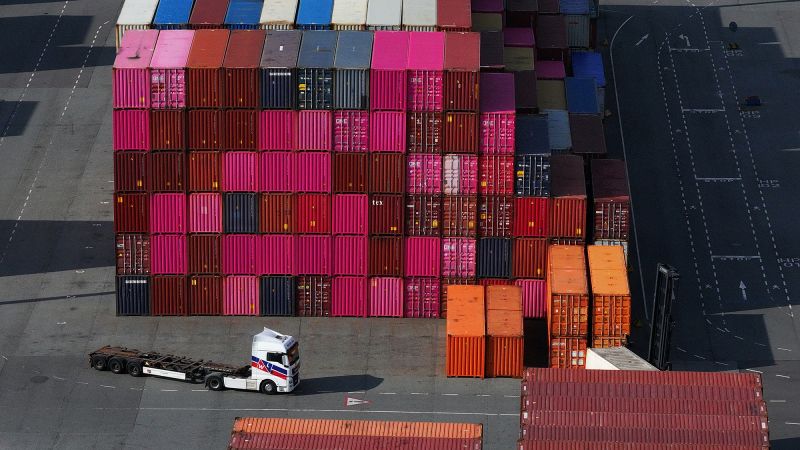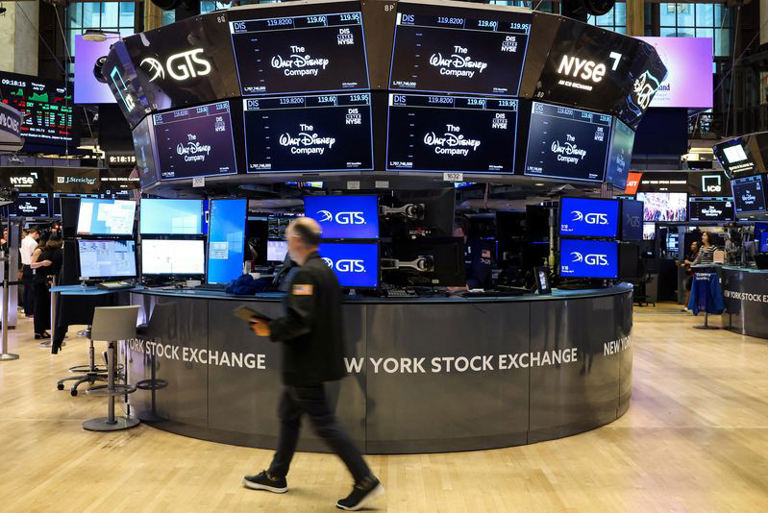London
—
President Donald Trump may rate Sunday’s trade agreement with the European Union as the “biggest deal ever,” but for some within the 27-nation bloc, it feels a lot more like economic appeasement.
French Prime Minister François Bayrou called Sunday a “dark day” for the region in a post on X. “An alliance of free peoples, gathered to assert their values and defend their interests, resolves to submission,” he wrote.
The agreement, struck between Trump and Ursula von der Leyen, president of the European Commission, sets a 15% tariff on most imported goods from the bloc and includes EU commitments to invest hundreds of billions of dollars in the United States and buy US energy products.
Trump has boasted about reaching the framework after mounting criticism directed at the handful of trade deals that have been agreed to since he announced sweeping tariffs on more than 100 trading partners. He has managed to score what he believes is an accord favorable to the United States despite severely testing America’s relationship with its largest trading partner.
But, like Bayrou, other European leaders have lamented the agreement — essentially a framework for a future trade deal — as an exercise in damage limitation.
The EU’s new across-the-board tariff halves the 30% levy Trump had threatened to impose from Friday and stands below the 20% brandished back in April. But it is still well above the average of around 1.2% from before Trump’s second term.
In a statement Sunday, von der Leyen said the agreement offered “stability and predictability” to European and American companies. In recent months, the Trump tariff roller coaster — his flurry of tariff announcements, pauses and retractions — has made it difficult for businesses to plan ahead.
“Of course, no tariffs would have been better, but this agreement provides more clarity for our businesses and brings more market stability,” Dutch Prime Minister Dick Schoof wrote on X on Sunday.
For Germany, the bloc’s largest economy and a major car exporter, the deal has whittled down the 25% levy Trump slapped on its auto exports in April.
German Chancellor Friedrich Merz said Sunday that European negotiators’ hard work had paid off: “A trade conflict has been averted that would have severely impacted the export-oriented German economy,” he wrote in a post on X.
Others were less diplomatic in their assessment.
Hungarian Prime Minister Viktor Orban said in a podcast interview on Monday, cited by Reuters, that Trump had steamrolled the EU in negotiations, comparing the US president to a heavyweight boxer against von der Leyen’s “featherweight.”
Belgium’s Prime Minister Bart De Wever also said Sunday’s deal was a “moment of relief but not of celebration.”
“I sincerely hope the United States will, in due course, turn away again from the delusion of protectionism and once again embrace the value of free trade – a cornerstone of shared prosperity,” he wrote on X on Sunday.
Bernd Lange, chair of the European Parliament’s trade committee, said the deal is “not satisfactory” in a post on X on Sunday, adding that “concessions have clearly been made that are difficult to accept.”
David Collins, professor of international economic law at City St George’s University of London, echoed Lange’s comments Monday on CNN.
“This is a humiliating capitulation on behalf of the EU … it really makes you wonder: What is it actually doing for its member states if the UK can on its own get a better deal than this giant economy?” he said.


